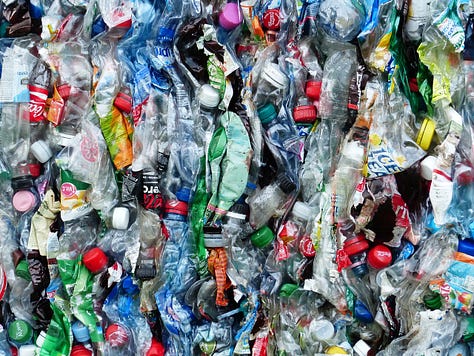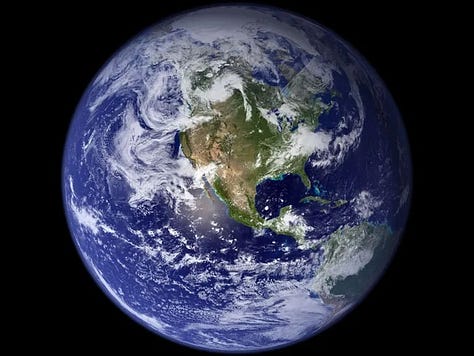Green Lights April 26: Top stories this week
Don't miss a single story of the best from Callaway Climate Insights.






. . . . Welcome back to Green Lights. Here’s our weekly roundup of the best of Callaway Climate Insights. This week, David Callaway writes about the new federal rules for coal plants; plus, an almost-accidental app that’s meeting people’s needs in the face of increasing fire danger. Plus, we give a nod to Earth Day, World Penguin Day, and Arbor Day. Have a great weekend. And please subscribe.
. . . . Federal rules unveiled Thursday that will require coal plants to capture nearly all of their carbon emissions by 2039 directly conflict with the country’s need to triple electricity generation in the next decade to meet surging AI needs. Legal challenges and a smackdown by the U.S. Supreme Court are almost inevitable, David Callaway writes. But President Joe Biden is calling the bluff of the fossil fuel industry that carbon capture technology is the preferred way to clean up the climate while continuing to drill and burn.
. . . . The UN Plastic Treaty negotiations are the biggest chance we have ever had to fix a broken system, writes guest contributor Douglas Woodring, founder and managing director of Ocean Recovery Alliance. There are big opportunities for those wanting to gain by participating in the heavy-lift of remediating some of the millions of tons of plastic which exists in our communities today, and which will continue to be created for years to come.
. . . . Tech entrepreneur John Mills didn’t set out to jump into the climate business when a wildfire threatened his California home five years ago. He just wanted to find out what was going on. But by rounding up some of the best radio operators and fire volunteers to found Watch Duty, a nonprofit app that tracks wildfires out West, Mills inadvertently created a new type of climate media. A just-the-facts-ma’am, fast-breaking reporting, social media service that is quickly becoming a must have for anyone in a wildfire area, and for any of the tens of thousands of people who fight them each summer. David Callaway takes a look at Watch Duty.
. . . . We think every day is Earth Day, but for this week’s annual acknowledgement, Matthew Diebel shares a memory of his child’s school project from years ago. A proud dad then and now. But today, the stakes are even higher.
. . . . Latin American governments are rapidly expanding their carbon markets to package and preserve environmental treasures such as the Amazon Basin, despite criticism that selling carbon credits allows polluters such as mining and oil companies to buy their way to a better climate footprint, writes Michael Molinski. Countries such as Mexico and Brazil are leading the way to develop what could be a regional carbon credit market, such as the one in Europe and being attempted in China.
. . . . Great piece this week by our partner ClimateCrisis 247 showing cities in the U.S. with the most heat inequality between rich and poor neighborhoods. Using government data, reporter Evan Comen found that in some cities there can be a difference of up to 20°F within the same city, depending on variables such as elevation and slope, and that the hottest areas also tend to be the lowest income ones. In some places, a $10,000 adjustment higher in income can lead to a surface temperature up to 2 degrees cooler. Check to see if your city is on the list. . . .
More greenery . . . .
Get your hands dirty: It’s Arbor Day! Help the Arbor Day Foundation plant more trees, educate more people, get more hands in the dirt, and support more lives across the globe.
Time to say goodbye: Warming temps are the endgame for coral reefs as we know them (Vox)
Believe it, it’s true: Pope Francis criticized ‘foolish’ climate change deniers (Euronews)
Not just for wine bottles anymore: Cork has the power to fight climate changes, scientists say (ABC News)







